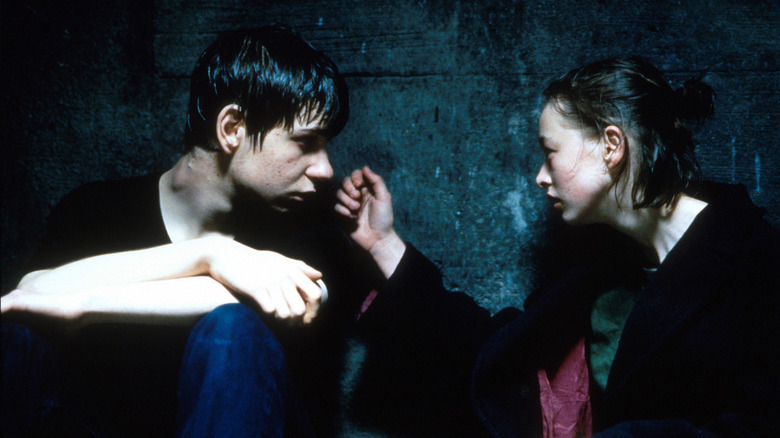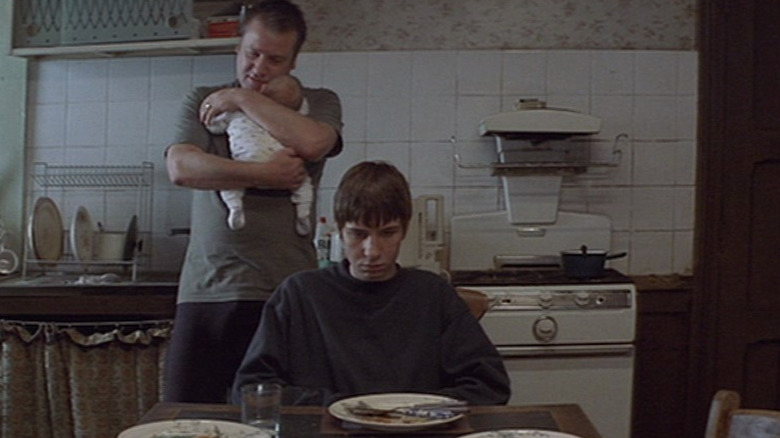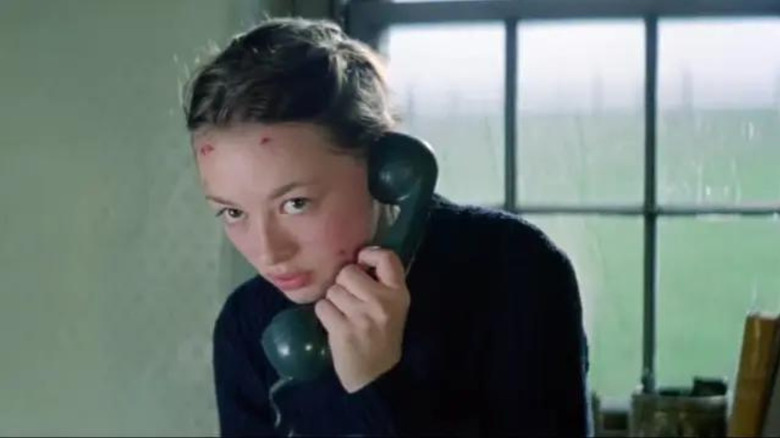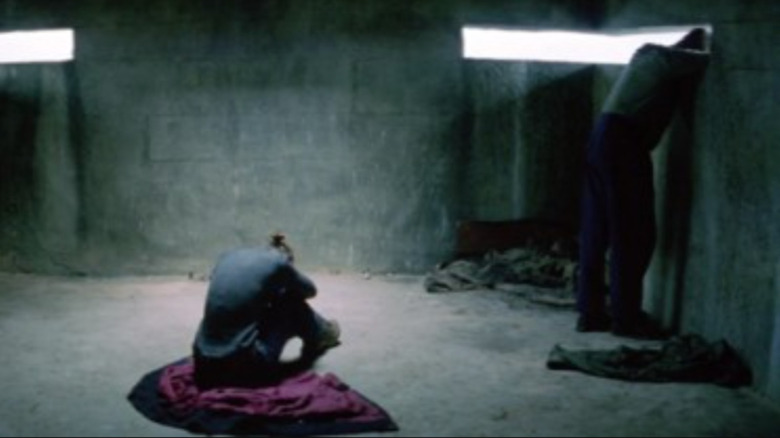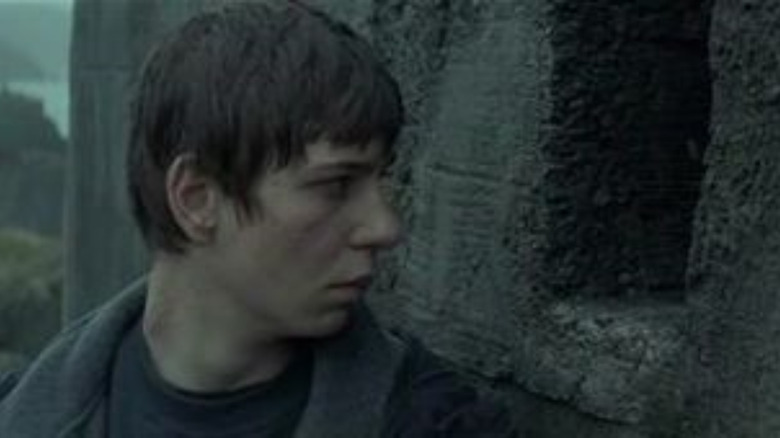The Daily Stream: The War Zone Proves The Potential For Extreme Cinema As Artistic Catharsis
(Welcome to The Daily Stream, an ongoing series in which the /Film team shares what they've been watching, why it's worth checking out, and where you can stream it.)
The following Daily Stream contains discussions of child sexual abuse and incest. Please proceed with caution.
The film: "The War Zone"
Where you can stream it: The Roku Channel, Tubi
The Pitch: For as long as the idea of "extreme cinema" has been a thing, there have been discussions over whether scenes of graphic sexual acts, especially non-consensual ones, are necessary to watch for either plot or audience enjoyment reasons. There certainly have been many instances where rape and assault scenes are not handled with the care they deserve, and these scenes are the ones that come up when people discuss the artistic importance of depicting such evils.
Then, there is "The War Zone." Released in 1999, the directorial debut of Tim Roth followed a British family that seemed to be typical in every way. However, Tom (Freddie Cunliffe) discovered that his Dad (Ray Winstone) and sister Jessie (Lara Belmont) kept a horrible secret — Dad has been coercing Jessie into having sex with him. Now with a newborn baby sister in the household, the siblings must contend with the dangers of keeping silent and what they could lose by confessing.
It is just as difficult a watch as this synopsis might suggest. However, it serves as a necessary reminder of the potential that extreme cinema has in helping artists grapple with their own experiences and fears. If they are able to make such art in this landscape, that is.
Why it's essential viewing (for those that can handle it)
As the subheading suggests, I'm not urging everyone to watch this film, as staunchly recommending a movie like this to those affected by its themes would be really terrible. However, if you don't have that personal connection, it can't be understated just how essential "The War Zone" is in demonstrating how damaging this abuse can be.
From the very start, it's clear that this film doesn't have the predatory, exploitative gaze that many other depictions of abuse suffer from. Each shot feels authentic in a way that feels like the camera recognizes the twisted family dynamics at play. While not overbearing in their number, the actual abuse scenes are graphic, and there is little attempt to shield the audience from the acts.
However, unlike other movies where these scenes feel too invasive to truly be personal, these are filmed with an awfully sympathetic gaze. The camera does not revel in capturing such suffering, but it is doing so anyways to solidify to the audience how dangerous it is to undermine abuse like this. These scenes feel like a dare in the sense that the film is asking whether you think that trivializing, downplaying, or making fun of such abuse is worth it when there are real people suffering.
Context is, unfortunately, key
There is unfortunately a reason why "The War Zone" feels as authentic as it is. When the film was released, Roth revealed that he was a victim of sexual abuse as a child and that his experiences with grappling with the events inspired him to direct it. However, it wasn't until 2016 that he named his assailant; it was his grandfather, who had also abused Roth's father as a child. He told The Guardian that his grandfather was never confronted about what he had done because the language to discuss it wasn't available at the time.
The safety of victims should not be compromised by forcing them to reveal their experiences with abuse. However, Roth's admissions make "The War Zone" even more poignant when you consider the intensity of the scenes in which Jessie is assaulted. It explains why these scenes were never played up for cheap emotional value, the actions speaking for themselves. He filmed the movie from the unique perspective of someone who was in her position. If you have experienced these same events, you know they are sometimes not as dramatic as they seem in the movies. Sometimes, they just feel like everyday occurrences, and that is arguably more terrifying than a random act of violence.
A nuanced and painful outlier in extreme cinema
The debate over the morality of rape and abuse depictions in media is never going to be neatly solved. There are simply too many factors and unique experiences that will influence one's opinion on the matter, and who are we to judge some survivors for not wanting to see these scenes? You also can't deny that the majority of such scenes in media are egregious in their gaze, depicting these acts of violence with an air of fascination or even tantalization. Whether you like it or not, we will likely be debating whether abuse should be included in film and television until climate change destroys this planet for good.
However, these conversations should also consider the effectiveness of the proper gaze in "The War Zone." It is a movie whose brutality is made worse because its existence isn't made solely for cheap shock value. It exists to make the audience understand the true pain and suffering that happens when you allow victim blaming and apologism to run as rampant in society as it is. Sure, its methods might be harsh, but it feels like a last-ditch effort to convey this horrific danger.
And this is ultimately what makes this film so much more different in its approach to abuse than other examples of extreme cinema. While meant to disturb its audience, there is a distinct sadness to these scenes that can only come through recognition. It doesn't want to show what it does, but rather, it feels it needs to.
What happens next
It's not that stories like "The War Zone," where survivors take control of the narrative and use the camera as a means of catharsis, don't exist. It's just that they are not being uplifted or funded in the way that they should be. It seems like the only way for these stories to get told is if they have a specific outsider's angle. Whether or not this is because an insider's perspective is too risque to follow is unclear, but what is clear is that survivors are rarely given the space within the filmmaking industry to tell their stories. It was likely Roth's standing as an actor that allowed this film to be made in the first place.
There is tons of untapped potential within the world of extreme cinema that can explore these themes and ideas in more complex ways. However, what the filmmaking industry needs to do is allow survivors to make these stories. The culture of silence saddled on these survivors needs to be torn down for good to ensure that they are free to create the art they need to make. While that likely won't happen overnight, "The War Zone" should be heralded as an example of what being allowed to use cinema as a means of catharsis can result in.
